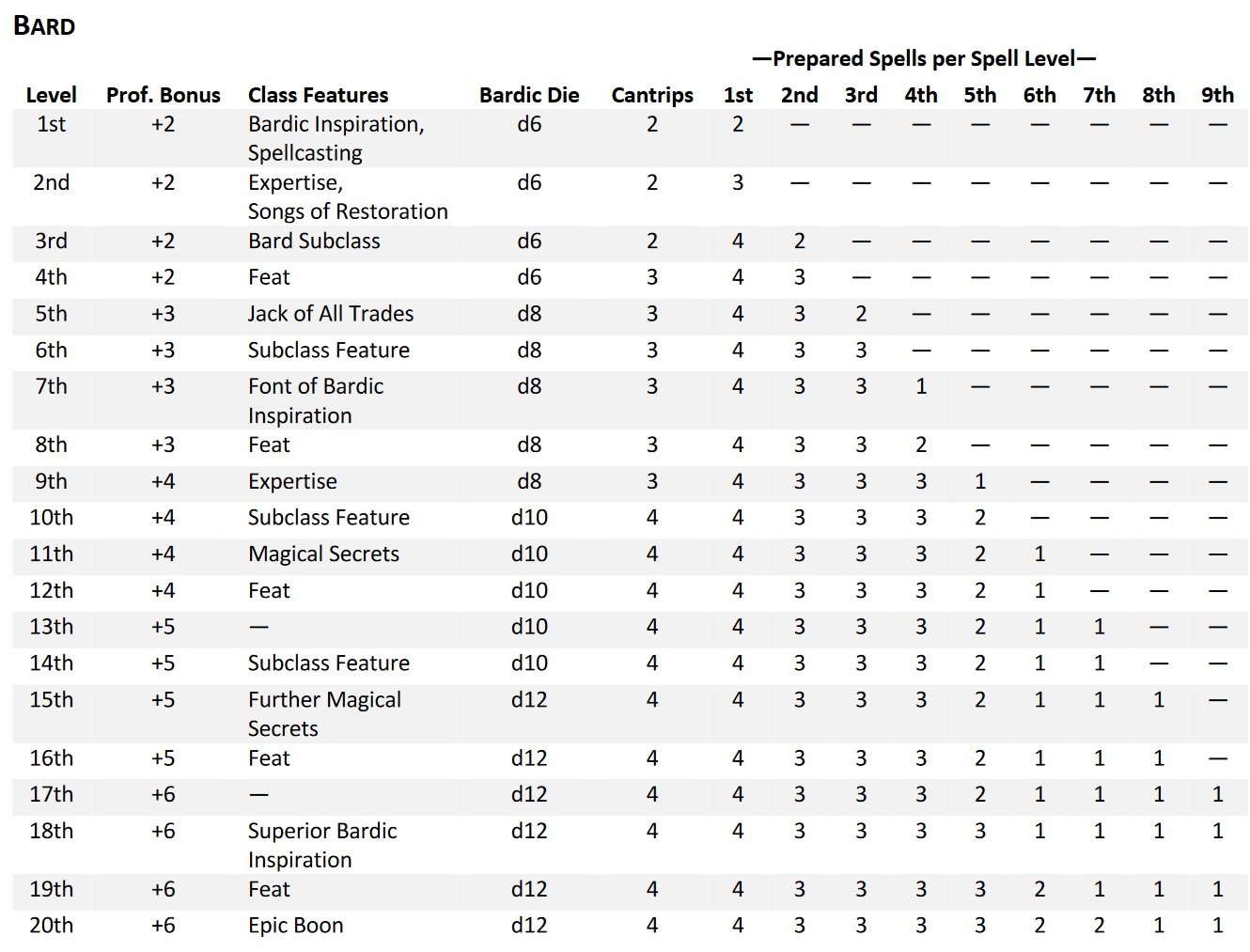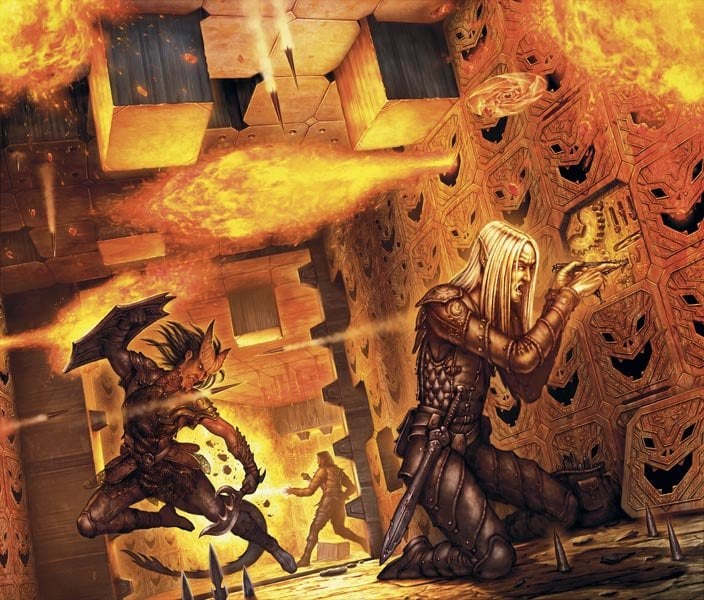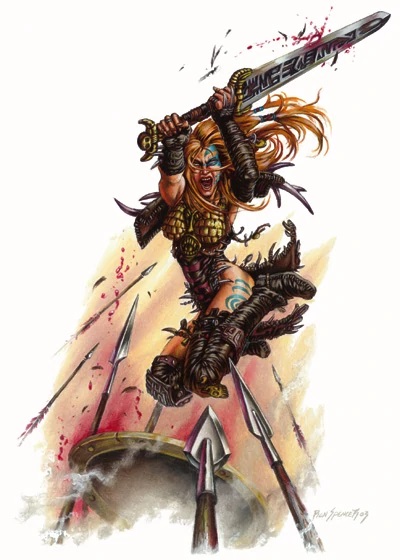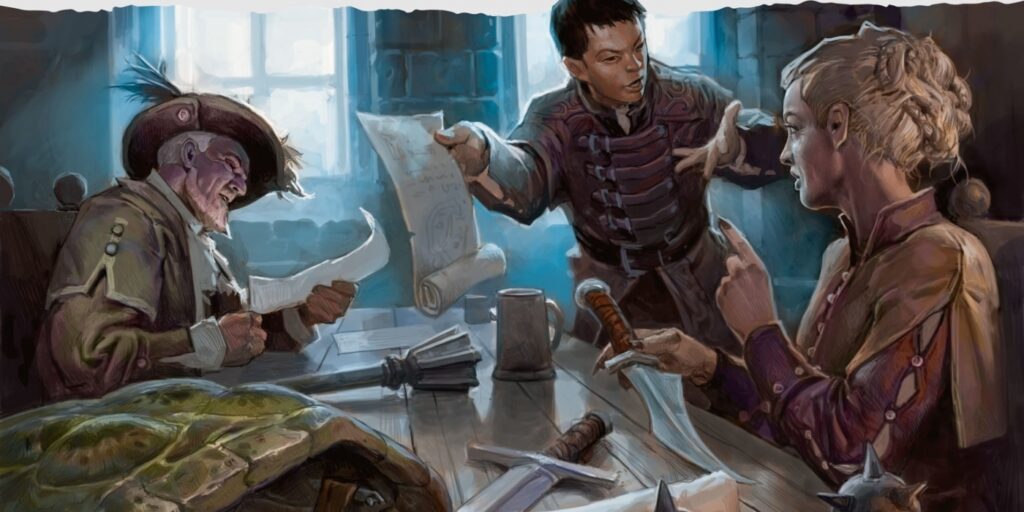Biggest Changes in ‘One D&D’s Expert Classes – Unearthed Arcana
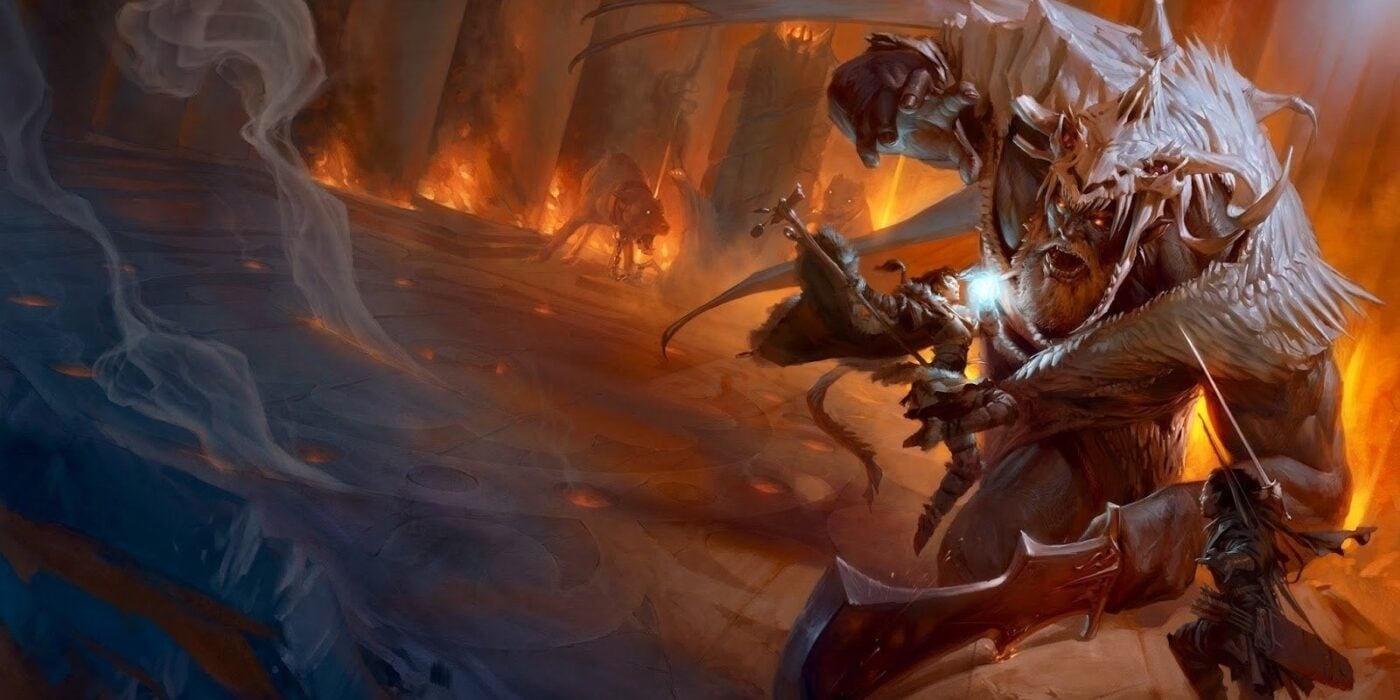
In the Expert Classes Unearthed Arcana, there are many changes big and small. These are the biggest ones worth noting.
D&D’s newest Unearthed Arcana, the Expert Classes UA, brings a host of changes to Dungeons & Dragons. This is the first look at how classes will look in the future of D&D. But in the Expert Classes UA we also get a look at different feats. At new core rule changes. Some things are huge, some are small. And while we’re going to go through each of the classes individually, let’s kick the weekend off with the biggest and boldest changes in the new playtest rules.
Expert Classes UA – You’re A Wizard, Harry (Well, Cleric, Actually)
Perhaps the most dramatic change is to the spellcasters in the group. Bards and Rangers now prepare spells instead of picking a list of spells known. Instead of having a small list of spells they can always cast from, if they have the spell slots, they pick a specific selection of spells from a much larger list every time they take a long rest.
It fits in line with their spell slots. Let’s look at the Bard as an example:
A 1st level bard can prepare two 0-level spells and two 1st-level spells. But you must pick from the Arcane Spell list and the spells you prepare must be either Divination, Enchantment, Illusion, or Transmutation spells.
At higher levels, you prepare more spells. At 10th level, for instance, you can prepare 4 0-level spells, four 1st-level spells, three 2nd-levels, three 3rd-levels, three 4th-levels, and two 5th-level spells. For a total of 15 different spells racked and ready to go.
In contrast, a 5E Bard, at 1st level knows four 1st-level spells, and can cast two of them. A 10th-level Bard knows 14 spells.
But the biggest difference here is that Bards and Rangers will have access to their whole list. Which is even more freedom than Tasha’s Cauldron of Everything gave, with the ability to change out spells known. Sure there are some restrictions, but this gives players a lot more freedom to try out different spells (including Cantrips) and see how they work.
Nice Grouping
The other biggest change is the addition of Class Groups. All the classes now fit into one of four group: Expert, Mage, Priest, or Warrior. This means that D&D can be a lot more flexible and rules can apply to classes without having to add a bunch of extra text. A magic item can apply to “only Mages” without having to say “only a Wizard, Warlock, or Sorcerer” can attune to this magic item. Similarly, this lets WotC potentially add new classes pretty easily.
This adds a lot of flexibility and “future-proofing” to D&D.
Expert Classes UA – Feats for Everyone
There’s an expanded list of new feats. And there are feats for every class group here as well as a number of unclassed feats. A lot of familiar faces.
Right away, the Ability Score Increase that most folks are familiar with is now just a feat. You have to be 4th level to take it, and you can take it any time you would pick a feat. Or you can take some of the added feats. Players will doubtless have mixed feelings about increasing ability scores vs. taking cool feats, but that’s how 5E was, so it’s not too different.
Members of the Warrior Group can pick one of the classic Fighting Styles as a 1st-level feat. Now without seeing the Warrior Group, we don’t know if that means that Fighters will have to give up their first-level feat in order to pick a signature fighting style, one of the few resources they had broadly available.
But the biggest change in the Feats section is a massive nerf to some of the strongest feat combos. Great Weapon Master and Sharpshooter no longer give +10 damage for a -5 on the attack roll.
Polearm Master doesn’t increase the reach on Sentinel (which now only works within 5 feet, regardless of weapon).
Exhausted isn’t as Exhausting and Other Core Rule Changes
Several core rule changes are in the mix as well. But the biggest among those is an overhaul of the rules for Exhaustion. Now Exhausted is a condition that has levels of Exhaustion. You can take up to 10 levels, if you go over 10 levels of Exhaustion you die. Which, I mean, tell me about it.
But it no longer slams you nearly as hard. Now it’s just a flat penalty to d20 Rolls and Spell Save DCs, which is interesting. As of now Exhaustion punishes spellcasters too but is a lot more forgiving to Frenzied Berserkers.
Happy Adventuring


